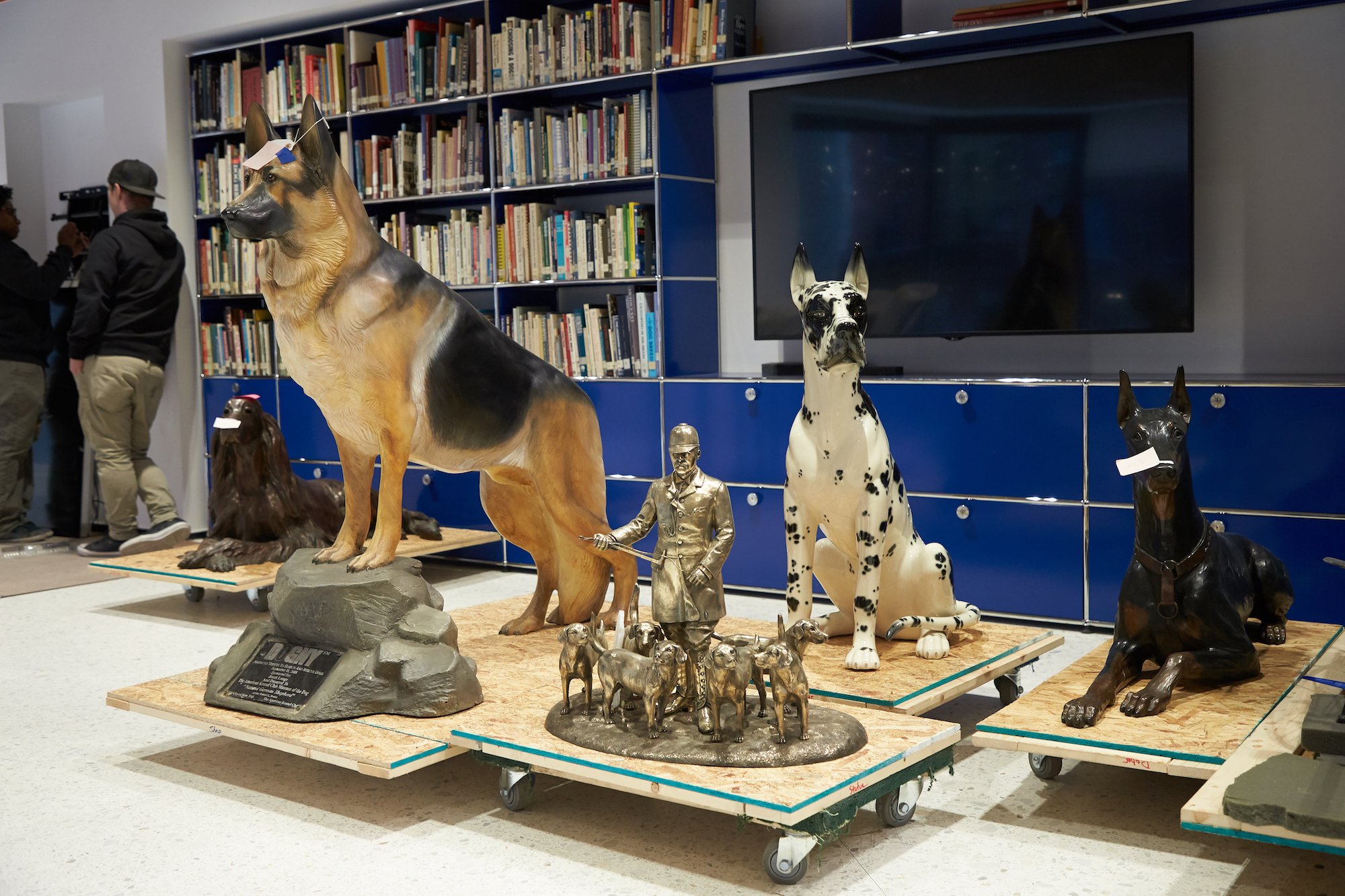
The Museum of the Dog is coming to New York. But before you dismiss it as yet another pop-up gimmick (or pup-up, as it were) from marketing-savvy millennials, rest assured that this is an earnest affair. It was founded by the American Kennel Club as a tribute to man’s best friend, and is filled with traditional oil paintings, porcelain, prints, and drawings. Many works immortalize individual dogs, such as George H.W. Bush’s English Springer Spaniel Millie, and various dog show champions from over the years.
“There are some staggering dog paintings here,” Museum of the Dog executive director Alan Fausel told artnet News.
The 1,700 objects in the museum’s collection are mostly donations, though the American Kennel Club has some of its own holdings that date back to the turn of the century. Before making the move to New York, Fausel took a hard look at the museum’s collection and decided to deaccession some 900 objects. “There were a lot of redundancies,” he said. “People would give us lots of ceramics. We don’t need 300 bulldogs!”
Paintings on view at the American Kennel Club’s Museum of the Dog. Photo by David Woo.
It turns out the museum is actually making its return to the city. It originally opened in New York in 1982, but closed 30 years ago before relocating to St. Louis two years later. It’s new home is in a glass office building near Grand Central, a convenient location that’s part of a bid to increase attendance, from under 10,000 last year in St. Louis to, hopefully, 80,000 to 100,000 in New York.
It helps that Fausel was already familiar with the museum before taking the job through his work in the auction world, having organized an annual sale of dog paintings, first at Doyle and then at Bonhams, for the past 16 years. At times the museum purchased works from the sale.
Installation view, including Maud Earl’s I Hear a Voice at center, of the American Kennel Club’s Museum of the Dog. Photo by David Woo.
Many of the works on view in the inaugural exhibition offer rather sentimental depictions of dogs. Take for example I Hear a Voice: Portrait of the Champion St. Bernard ‘Frandley Stephanie’ by Maud Earl, which depicts a heroic-looking canine seemingly poised for a mountain rescue. “In reality this was a British show dog that probably never got within 300 miles of the alps,” said Fausel. “The Victorian era tended to idealize their dogs, whereas Continental art was more realistic, kind of ‘warts and all.'”
The museum’s greatest strengths are in 16th- to 20th-century American and British art. On the contemporary side, there are—naturally—William Wegman’s photographs of dogs, as well as a picturesque ode to New York and the American Kennel Club featuring dogs and their owners strolling in front of the Plaza Hotel, painted by Kathy Jakobsen.
Kathy Jakobsen, Dog Walking in Central Park (1993). Photo by Sarah Cascone.
What you won’t see is violent hunting art, with dogs chasing down boars or stags, although the museum does own their share of that fare. Instead, there’s a 30 million-year-old fossil of a prehistoric hesperocyon dog, plus the parachute used by Smokey, a Yorkshire Terrier who was the mascot for a US air force squadron during World War II and who actually flew combat missions.
There are also ceramic works from China and Mexico, showcasing the international appeal of man’s best friend, displayed in a massive cabinet that ascends alongside the museum’s staircase.
Dog figurines on view at the American Kennel Club’s Museum of the Dog. Photo by Sarah Cascone.
In addition to art, the museum also houses a reading room featuring books from the Kennel Club’s 15,000-volume library, and interactive computer kiosks that let visitors train a digital puppy or match their photo to the breed that looks most like them. The current display will be on view for the next six months, followed by quarterly exhibitions.
What does Fausel have in store next? “I want to get a dog mummy!” he said. “They are out there, and kids love mummies!”
The skeleton of Belgrade Joe (1868–1888), considered the father of the modern Fox Terrier, on view in the library at the American Kennel Club’s Museum of the Dog. Photo by David Woo.
The American Kennel Club’s Museum of the Dog is located at 101 Park Avenue, New York. General admission is $15.